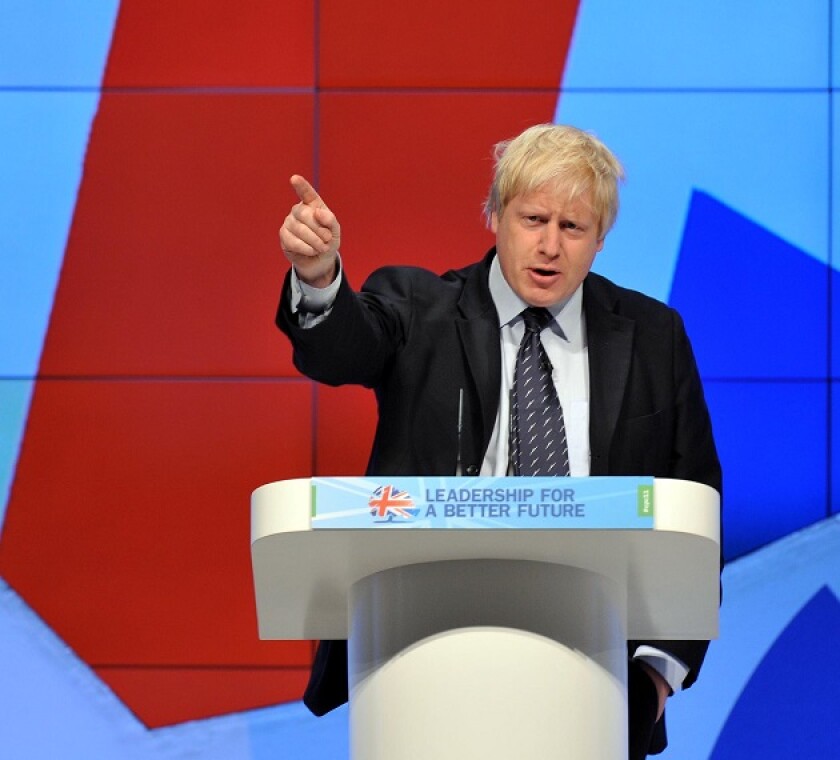Johnson has vowed to deliver Brexit, deal or no deal by October 31. However, the UK is tied into the withdrawal agreement negotiated during Theresa May’s tenure. The EU will resist all efforts to reopen the deal while the political declaration is open to change.
“The likelihood of Brexit not happening may have increased in recent months, but the chances of a hard, sharp, no-deal Brexit have increased as well,” one tax executive at a FTSE 100 company told ITR.
“There will have to be a lot more discussions about corporate tax rates and personal rates,” the executive said. “Then there is the issue of whether the EU will continue to be the body of tax law for the foreseeable future.”
The UK’s membership of the EU has guaranteed key aspects of tax policy. If the UK leaves without a deal, the country would find itself outside commitments to EU state aid law, as well as customs and VAT. The UK would also lose assurances on withholding taxes with EU member-states.
All of this could be very costly for British companies with supply chains stretching to the continent. Few possibilities can be ruled out given Johnson’s tendency for surprises. The damaging consequences of no deal could leave the UK with little choice other than to raise taxes.
“Brexit, and all of the nonsense that has followed it, has driven the markets into ever greater uncertainty,” said one head of tax at an energy company. “The long-term economic impact may force people to rethink tax policy.”
Soon Johnson will appoint the next chancellor in what will give a sense of where UK fiscal policy might be going. The Conservative leader will have to shake-off the impression that he does not care about the interests of business if they clash with Brexit. This is where the next couple of months will be decisive.
The end of compromise
The Conservative government may have boxed itself into a no-deal strategy. Johnson has ruled out extending the October 31 deadline and suggested the backstop on customs is “dead”. If the EU is unwilling to renegotiate the terms of the withdrawal agreement, the UK could just crash out at the end of October.
There is a time limit for securing a ‘soft’ Brexit, where the UK would stay aligned with EU rules or even stay in the customs union or the single market, but there is little chance of such a deal. Johnson has pitched his legitimacy on delivering Brexit without compromise.
“The passage of time has cut down options in the middle ground,” said George Bull, senior partner at RSM. “It looks like we’ll either have a complete Brexit or we could face another referendum.”
EU officials have told the British press that they think there is an 80% chance Boris Johnson will lead the UK out with no deal on October 31. “We’re very puzzled,” one EU official said. “He’s closed a lot of doors. He’s closing down each and every possibility.”
“This isn’t something you invent on a small piece of paper on the corner of a table at 3am,” one EU diplomat said.
Richard Asquith, VP for global indirect tax at Avalara, suggested that no deal may be the most likely outcome.
“Businesses will, very reluctantly, have to climb back up the no-deal preparation hill,” Asquith told ITR. “Another bout of restocking and hoarding, plus prolonged delays in investment decisions.”
“The last point is the most worrying,” he said. “Multinationals will now look to relocate planned UK investments and acquisitions to Europe given the continuing uncertainty.”
EY has forecast UK business investment to contract by 1.6% in 2019. However, if Brexit is delayed yet again, it is possible the UK economy would see its GDP growth fall to 1.3% in 2020. The accounting firm projected that GDP growth might rise to 1.5% in 2020 and 1.8% in 2021 if the leaving deadline is met with a deal in place.
No-deal Brexit, in contrast, could mean a GDP growth rate of 0.3% in 2020. This would be a mild economic slump before rising to 1.1% in 2021. However, it’s not a given that the UK would be a more competitive economy in the end.
“Most small businesses don’t know how to prepare, whether they are trading with Europe or not,” Bull said. “This uncertainty is translating into business in a very bad way.”
“When we look at the bigger companies, we can see that the UK has a weak currency and a sophisticated economy with a long manufacturing history,” he told ITR. “All of those factors say the UK should be in prime position to see enormous growth in manufacturing base for exports.”
“What are we seeing? We are seeing the reverse,” Bull said. “We’re seeing more manufacturers pulling out of the UK.”
On the other hand, there are some businesses that are open to the idea that Brexit will be manageable, but those same companies fear what a change of government may hold for them. Failure could doom the Conservative Party at the next election.
“A change of government would mean a higher tax rate. It would possibly mean a withholding tax on euro bonds,” one tax director at a fintech company told ITR. “That’s everything for us because it is how our debt comes in.”
“It’s a lot of debt and that’s why the risks are so high,” the director said.
The Conservative leader will have to reassure business leaders, settle the UK’s fiscal strategy and deliver Brexit to satisfy his Leave supporters. All of this has to happen in the next 100 days. The clock is ticking.











